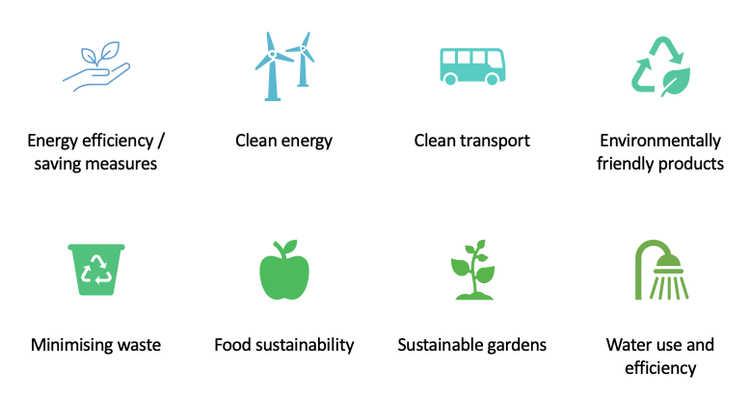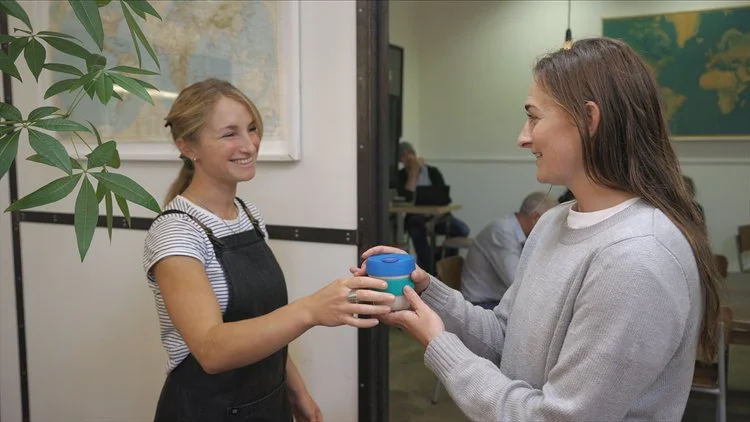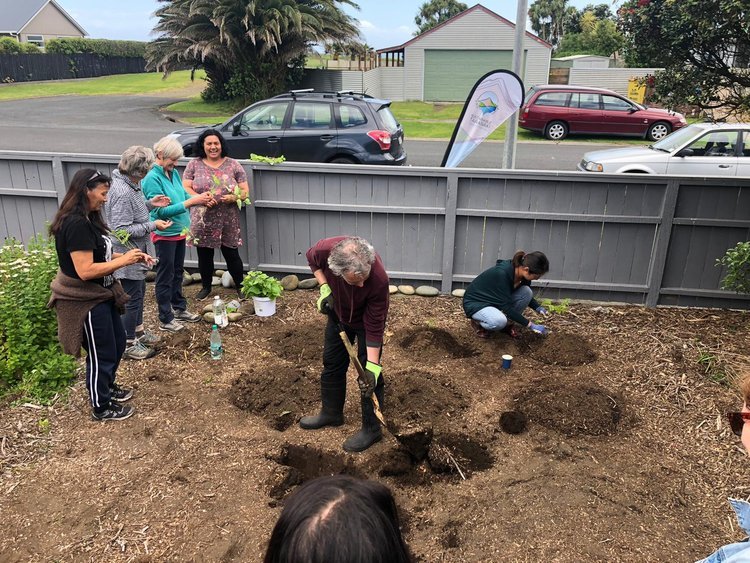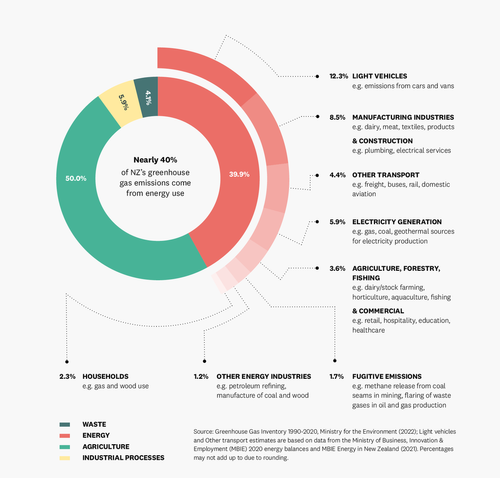Promoting Sustainability Through Behavioural Change
“Behavioural change” studies how people make choices and suggests how to improve the choices they make for their own good.
Richard Thaler & Cass Sunstein
With funding from TOI Foundation, Sustainable Taranaki engaged in a 3-year research project to gain a deeper understanding of what drives sustainable behaviour change in our community and how to support people along the journey.
Part of this project involved collecting information about our community’s behaviours in two different moments: the Summer of 2020 and the Summer of 2022 (Dec-Mar).
We selected 8 behaviours to measure how much people engage with them, how knowledgeable they are and what motivates them most.
With over 1500 responses received, we analysed the data and found some great insights. Check out our infographic for some of the key findings: (click to expand the image)
The community values sustainability and wants to do more to be sustainable.
We found a small impact of Covid-19 on people’s confidence, motivation, and the importance given to sustainable behaviours in our follow-up results.
Some of the main changes since 2020 include:
Growth in importance for Food sustainability, and Water use and efficiency.
Increase in the consideration of Costs and Reducing pollution in purchasing decisions.
Preference for social media tips and community Facebook group supporting sustainable behaviours.
Most of the time, people’s motivation, importance, and practice levels exceeded their confidence and knowledge level. We see this as an opportunity to help motivated people with knowledge and opportunities to engage in sustainability.
In general, women tend to care more about sustainability initiatives than men; Māori more than other ethnic groups; Older people more than younger ones, and the perceived cost involved in sustainable behaviours is a barrier that affects age groups differently.
The main behaviours adopted in the last two years match people’s importance, motivation and knowledge.
When asked about specific behaviours adopted in the last two years, minimising waste seems to be the most relevant one that the community is engaging with, even with a slight decrease in 2022. Most people reported mostly recycling better, reusing and reducing more.
Bringing their own cups, bags, and containers was also mentioned.
“Greatly reducing the amount of plastic/non-compostable waste”
“More diligent about recycling (sorting properly, washing etc.)”
“Taking containers for takeaways”
You’ve heard about the Bring it! campaign?
“Ethical buying” was the second most mentioned behaviour to have been adopted in the last 2 years, which includes second-hand shopping, making your own, buying less in general, and buying organic, local, bulk or ethical products.
Researching about products and making conscious choices were also mentioned, such as buying products with compostable or recycled instead of plastic packaging.
“Going to farmers markets to buy locally grown food that doesn’t have miles attached to it."
“More mindful when it comes to buying food, e.g. how the product is packaged, was it locally made?”
“I do not use plastic bags for produce and shop at bulk stores where possible.”
Gardening took third place again, with most people having started growing their own food or planted new orchards and food forests.
“Developed a large terrace veggie garden and food forest including compost system and chickens”
“Extending my vege garden, using 2nd hand resources in the garden to support the garden, eg an old gate to grown beans up.”
Interestingly, clean transport is a behaviour that many in our community report to have adopted in the last two years, even when they also reported not being highly motivated, knowledgeable or to give it much importance.
Most people said they are walking and biking more, and driving less. Others reported changing to EV/hybrid cars, having one less/more efficient car, and using public transport. Below are some of the responses we received:
“Got rid of my car. I walk and cycle everywhere (except the occasional airport taxi).”
“Planning trips to town to make better use of the petrol I do have to use”
“Taking the bus 1x per week”
People’s focus is disconnected from the actual impact of their behaviours in reducing emissions
The high value of minimising waste can be related to current recycling and zero-waste initiatives by local governments and civil society groups, which is a great starting point to be more sustainable. However, the contribution of the waste stream to NZ’s total GHG emissions is still under those from transport or manufacturing*.
Linking the impact of daily activities to their contribution to total GHG emissions, together with information campaigns, community support and a behaviourally-informed lens can be a way to promote change that supports current emissions reduction frameworks.
Below is an example from RARE about behaviours with the highest emissions mitigation potential, their feasibility and momentum in terms of behavioural change.
Watch this space to find out about emerging projects in this field!
Would you like to drive more sustainable behaviours, run a project or learn more about behavioural change? Contact us! We are always keen to collaborate with community groups and organisations.
Join our Sustainable Taranaki Community Facebook Group to share your experiences or ask questions from the Taranaki community. We’d love to hear from you and learn more about your sustainability journey.
The insights from our survey have informed NPDC’s Emissions Reduction Plan (out for consultation soon!) and are available for other organisations to use and learn from.
Download the full survey report here.
Written by Alexandra Vernal








